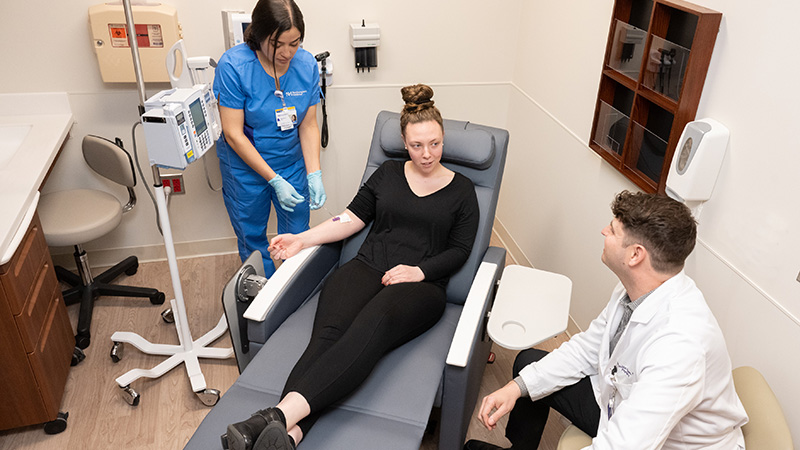Mental Health: When Race and Disability Intersect
Challenging the Stigma
Published February 2022
Mental health is an important part of a person's overall health and well-being. It's a topic that is often taboo in Black communities because mental illness is wrongly associated with weakness and shame. This stigma has caused many people to avoid mental health treatment. Whitney Wells, administrative associate in Diagnostic Imaging at Northwestern Medicine Kishwaukee Hospital, shares her experience with mental health in the workplace.
Why are you passionate about disability awareness?
I am a positive and optimistic person, so when I tell people about my anxiety and depression, they are surprised or say, "No way." I realized I have to be more vocal because other people are struggling as well. I am hopeful my story and voice can give people courage — even if it is to start by making their health a priority, seeking out counseling or using some of the employee assistance services offered by Northwestern Medicine.
The stigma around mental health extends past race and gender.— Whitney Wells
Can you share your insights on the relationship between gender, race and mental health?
I grew up in a loving home, so I was confused when I was young and would think, "Why am I like this?" The first person who told me about medication and counseling was my white roommate in college. That was in 2007.
It still took me a long time to get help because as a woman, people expect you to handle everything. On top of that, communities of color didn't start talking about mental health until recently. I have been getting help with my anxiety and depression since 2016. I am strong because I am getting help.
The stigma around mental health extends past race and gender. Men face the stigma of being weak for expressing their feelings or acknowledging their struggle.
What is a common misconception you encounter when interacting with people without a disability?
The most common misconception is that my disability stops me from doing my job well. Just because I am professional at work does not mean that I am not struggling, nor does it mean my work is suffering. It is hard to find the right balance, but with proper support, I can and continue to flourish.
How can people support their colleagues with invisible disabilities?
Believe what they say. If someone needs time off or space, tell them to take the time and that you are there to support them. It is our responsibility to trust what our team members tell us and show support; it is not an invitation to ask personal questions.
What unique perspective do you bring to work that helps you do your job?
I am very aware of how others feel. I work with many patients on the phone who might be dealing with cancer or some other newfound illness and are upset, afraid or stressed. I figure out what they need, make the calls, follow up with them and ask questions. I hope someone would go that far for me when I am struggling.





